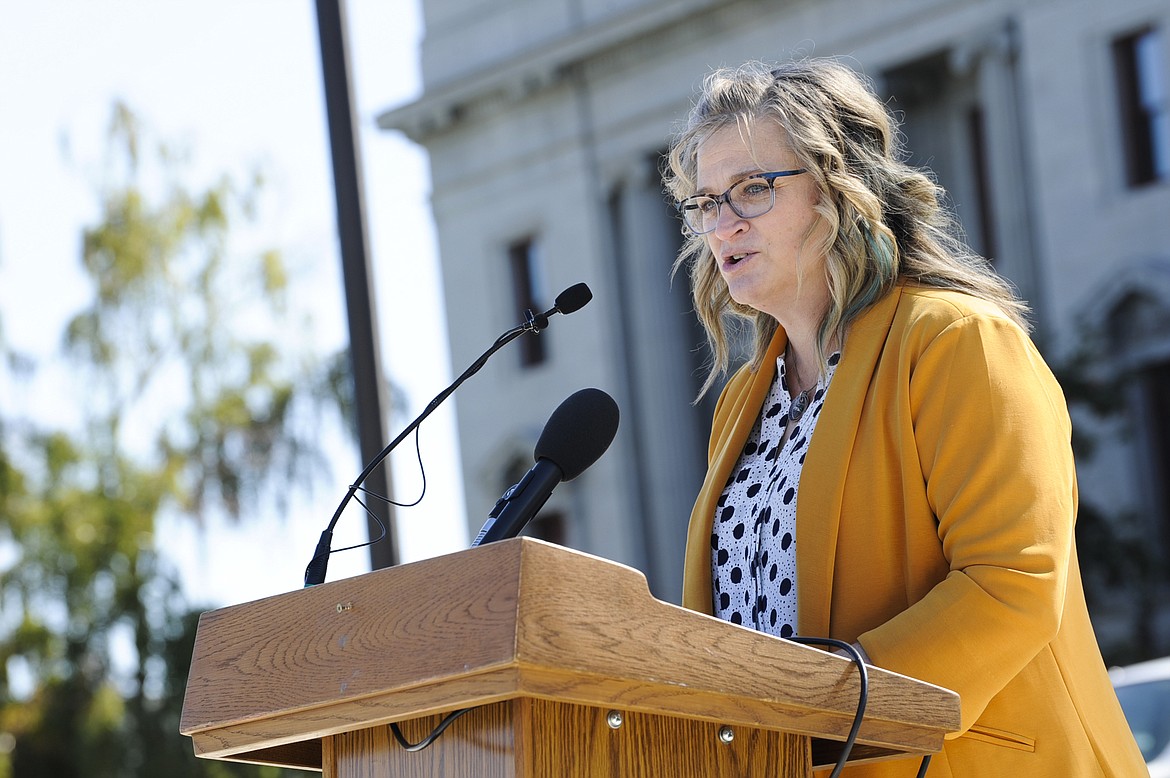Montana voters reject 'born alive' abortion referendum
WASHINGTON (AP) — Abortion rights supporters secured another win Thursday as voters in Montana rejected a ballot measure that would have forced medical workers to intercede in the rare case of a baby born after an attempted abortion.
The result caps a string of ballot defeats, months after the Supreme Court's decision overturning Roe v. Wade galvanized abortion-rights voters.
Michigan, California and Vermont voted to enshrine abortion rights in their state constitutions, and Kentucky voters rejected an anti-abortion amendment in a tally that echoed a similar August vote in Kansas.
Abortion rights groups said the outcomes show that voters across the political spectrum support access to abortion, even after a dozen Republican-governed states legislatures adopted near-total bans in the wake of the Roe decision. Anti-abortion groups, on the other hand, say they were outspent in the state races and point out anti-abortion candidate victories.
Like voters nationwide, only about 1 in 10 voters in California, Michigan, Montana Kentucky or Vermont said abortion should generally be illegal in all cases, according to AP VoteCast.
The Montana ballot measure would have raised the prospect of criminal charges carrying up to 20 years in prison for health-care providers unless they take "all medically appropriate and reasonable actions to preserve the life" of an infant born alive, including in the rare case of a birth after an abortion.
Doctors and other opponents argued the law could keep parents of babies born with incurable diseases from spending peaceful moments with their infants if doctors were forced to attempt treatment.
"Today's win sends a clear message to state leadership: Montanans demand our right to make private health care decisions for ourselves and our families … without interference from politicians Hillary-Anne Crosby, a spokesperson for the Compassion for Montana Families, said in a statement.
The bill's sponsor, Republican Rep. Matt Regier of Kalispell, did not immediately return a phone message seeking comment.
Abortion is legal in Montana up to 24 weeks, generally considered the point of fetal viability as was legal under Roe. The state Supreme Court has blocked restrictions passed last year in the Republican-controlled Legislature, and previously held the state's constitutional right to privacy protects access to abortion.
Kentucky, on the other hand, is one of the states with a near-total ban on abortion that has an exception for health of the woman but no exceptions for rape and incest.
In both Montana and Kentucky, voters overwhelmingly support carving out exceptions for women who seek abortions, AP VoteCast found. At least 8 in 10 Kentucky and Montana voters said their state should generally allow abortion if the pregnancy is the result of rape or incest and if the mother's health is seriously endangered by the pregnancy.
About 4 in 10 voters in the two states said women should be able to end a pregnancy for any reason at all.
The defeat of Kentucky's ballot measure explicitly denying any abortion protections in the state constitution doesn't change its strict abortion ban. But the outcome will likely help keep alive a lawsuit challenging the law ahead of a hearing set for next week.
In Michigan, meanwhile, voters passed a state constitutional amendment guaranteeing abortion rights and also gave Democrats full control of state government for the first time 40 years.
Men and women in Michigan were similar in their support for the ballot measure protecting abortion rights, VoteCast found. But younger voters were much more likely than older voters to support the measure. About 7 in 10 voters under 45 voted to protect abortion rights, compared with about 6 in 10 voters ages 45 to 64 and about half of voters 65 and older.
Women in Kentucky were more likely than men to vote down the effort to block abortion rights, 60% vs. 50%, but there were not significant differences across age groups.
In both Michigan and Kentucky, urban and suburban voters more likely than small town and rural voters to vote for abortion access. In Kentucky, and to a lesser extent in Michigan, college educated voters were more likely to vote for abortion access than those who did not have college degree.
In both states, self-described moderate voters overwhelming backed abortion access. Even among conservative voters, roughly a quarter voted to grant abortion access.
In California, majorities of voters across gender lines, age groups, education levels and community types voted in support of abortion rights, according to VoteCast.
Michigan state Sen. Winnie Brinks, who will become the chamber's first female majority leader, told reporters that affirming reproductive rights would be one of the Democrats' top priorities.
"You're going to see us echo the issues that the voters resoundingly approved on the ballot," she said. "We will be a state where equality is valued."


